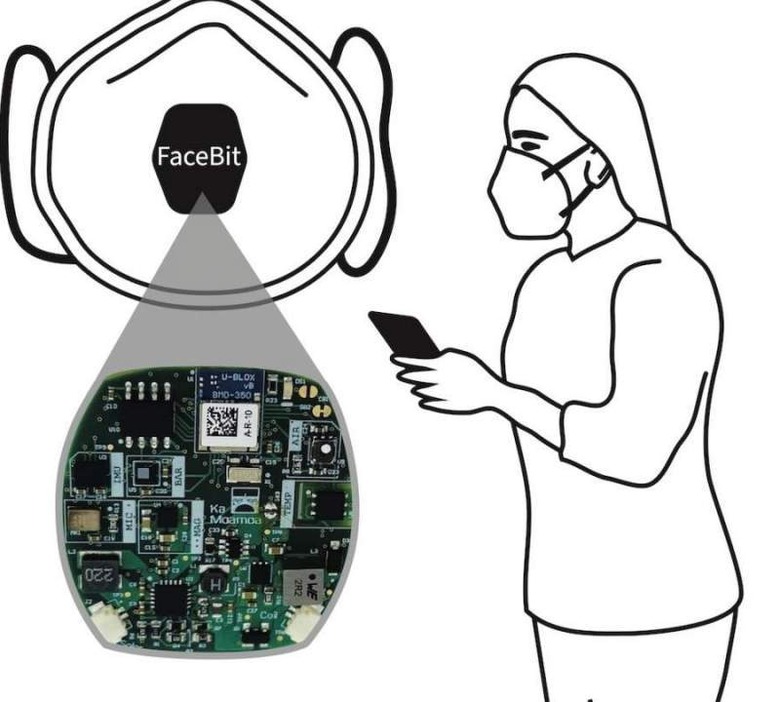FaceBit Mixes Face Mask With Fitness Device
Throughout the pandemic, we've seen several companies try their hand at "smart" face masks. The most useful of the bunch may have just been revealed not by a company, but by engineers at Northwestern University. Dubbed "FaceBit" – the engineers behind this project describe it as "Fitbit for the face" – this is not a full mask, but rather a sensor that can be magnetically attached to the N95 and surgical masks healthcare workers already wear.
Health tracking in your face mask
FaceBit is described in both the research article "FaceBit: Smart Face Masks Platform" and in a news post on the Northwestern University website. Josiah Hester, PhD of the McCormick School of Engineering and Applied Science, led the device's development.
As the name suggests, FaceBit is all about tracking various health metrics. The sensors in the tiny board Hester and his team created can track the heart rate and the respiration rate of the wearer through the mask it's attached to. In that Northwestern University news post, Hester explains that FaceBit is sensitive enough to detect the otherwise imperceptible movements our faces make whenever our hearts beat. With that in mind, it's no wonder that FaceBit can also track something more evident like respiration rate.
That heart and respiration rate data is then uploaded to a companion smartphone app, allowing users to see their health data, just like if they were wearing a Fitbit. FaceBit also tracks the total time users have worn their masks, and can potentially even give healthcare workers a window into when they should take a break, as elevated respiration and heart rates are often associated with elevated stress levels.
FaceBit can also alert users when the seal on the N95 mask they're wearing may have been broken. While it can't directly verify if facial seals are still in place, it can detect bumps that would be strong enough to break them and alert the user that they may need to fix their mask. It can also tell when the mask becomes too loose to ensure a proper fit.
FaceBit has seriously long battery life
Perhaps the most impressive part about FaceBit is its long battery life. While FaceBit comes equipped with an onboard battery, the small size of the board limits just how big that battery can be. FaceBit can harvest small amounts of power from sunlight and even the user's breath and motion, giving it a potential battery life of 11 days.
That's impressive and also necessary. In the video above, Hester explains he didn't want to develop a mask that had to be recharged every few hours. Eleven days of battery life exceeds that of many of the smartwatches we see today, but then again, the low-power components on the board itself (along with the fact that it doesn't have a display) help ensure that users can squeeze as much power as possible out of that tiny battery.
Northwestern University says in the future, we could see devices like FaceBit that are powered entirely by "harvested thermal and kinetic energy." While Hester says that FaceBit still needs to go through clinical trials, it sounds like he and his team have created a capable device here. They've also released it as an open-source project so anyone can build on the work the team has already done.

